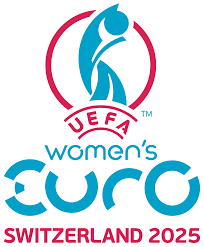Anticipating the Women’s Euros 2025: A New Era for Women’s Football

Introduction
The Women’s UEFA Euro 2025 football tournament is set to take place in the summer of 2025, promising to be a landmark event in women’s sports. With an ever-increasing following and the recent success of women’s football, the tournament is anticipated to showcase the finest talent in Europe, while raising the profile of the game even further. This event is significant not only for the participating nations but also for the future of women’s football as it seeks to inspire the next generation of players.
Details about the Tournament
Following the immense success of the Women’s Euros 2022, which was held in England and brought unprecedented crowds and viewership, UEFA is looking to build on this momentum in 2025. The tournament will be hosted by Switzerland, marking the first time that the country will host this prestigious event. Planning is already underway, with matches set to be held in cities such as Zurich, Geneva, and Bern, among others.
For the first time, the tournament will feature an expanded format, increasing the number of teams competing from 16 to 24. This change is aimed at enhancing competition and allowing even more teams to showcase their talents. Teams from all over Europe will compete for a spot in the prestigious tournament, making the qualification matches crucially important.
Impact on Women’s Football
The Women’s Euros 2025 comes at a time when women’s football is experiencing major growth and increased recognition. The European football governing body, UEFA, has committed to investing in women’s football, creating more opportunities for athletes and encouraging more girls to participate in the sport. The tournament is expected to draw significant media coverage and fan engagement, potentially breaking records for attendance and viewership.
Conclusion
As we look forward to the Women’s Euros 2025, the excitement surrounding the event is palpable. With Switzerland as the host nation and an expanded number of teams, the tournament promises to deliver electrifying matches and showcase the development of women’s football across Europe. The significance of this event goes beyond the pitch; it represents a cultural shift in how women’s sports are perceived and valued. Fans, sponsors, and aspiring young players alike will be watching closely, eagerly anticipating what the tournament will bring for the future of women’s football.









